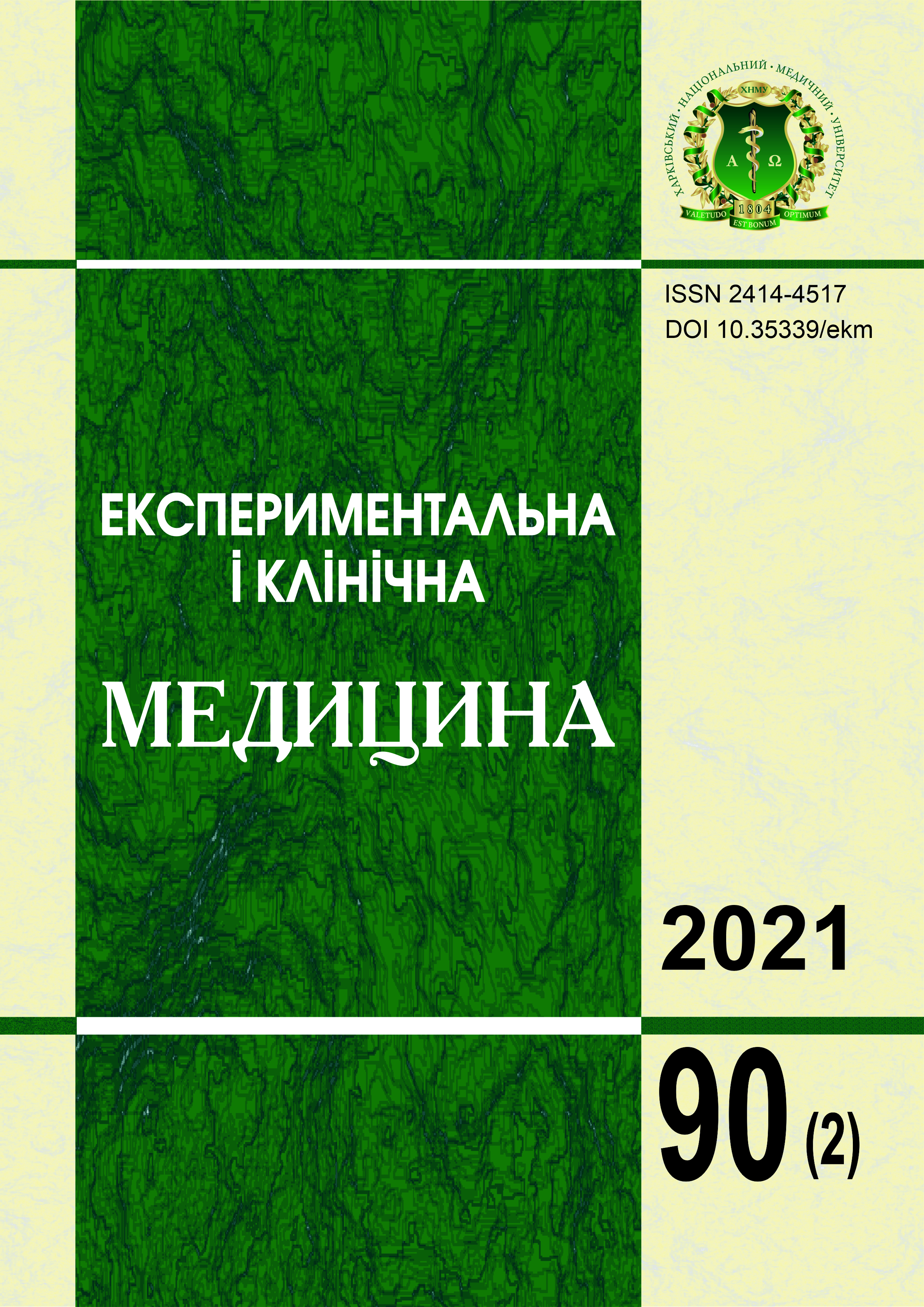Abstract
Recently, there has been a significant increase in thyroid pathology worldwide. In most studies of thyroid pathology, it is increasingly common to see an increase in thyroid hypofunction among individuals from different population groups. The aim of the study is to investigate the clinical and psychopathological features of the formation and course of anxiety disorders in patients with primary hypothyroidism. It was examined 74 patients of both sexes, aged 30–55 years with primary hypothyroidism (mild – 26.1% of patients, moderate – 45.2%, severe – 28.7%) who were diagnosed with anxiety disorder of organic nature (F06.4). The following examination methods were used in the study: clinical-neurological, clinical-psychopathological, anamnestic, psychodiagnostic. The most common complaints among the examined patients were constant feelings of anxiety, unmotivated anxiety, mood depression, various fears and intrusive memories, loss of interest in previous activities, general weakness, and rapid physical and intellectual fatigue. According to the study results, clinical picture of anxiety disorders in the examined patients is represented by anxious (38.2% of the examined), panic (36.7%) and anxious-depressive (25.1%) variants of psychopathological symptoms. The analysis of the severity of anxiety manifestations using the State-Trait Anxiety Inventory shows that in hypothyroidism there was an increase in the level of situational and personal anxiety. Analysis of neuropsychiatric stress level in the examined patients showed predominance of extensive (excessive) stress in moderate and severe hypothyroidism and intense (moderate) stress in patients with mild hypothyroidism. The data obtained during study allow to develop diagnostic criteria for anxiety disorders in patients with organic and symptomatic mental illnesses due to primary hypothyroidism.
Keywords: thyroid gland, neurotic disorders, anxiety, worry.
References
Kozhyna HM, Hryhorova IA, Korostii VI, Tovazhnianska OL, Haichuk LM, Mykhailov VB. Kohnityvni ta emotsiini porushennia vnaslidok somatychnykh zakhvoriuvan u osib pratsezdatnoho viku [Cognitive and emotional disorders due to somatic diseases in persons of working age]. Kharkiv: "Hlobus"; 2011. 150 p.
Tovazhnianska OL, Hryhorova IA, Kozhyna HM, Korostii VI, Markovska OV. Porushennia kohnityvnykh funktsii u khvorykh na pervynnyi hipotyreoz [Disorders of cognitive functions in patients with primary hypothyroidism]. Ukrainskyi medychnyi almanakh [Ukrainian medical almanac]. 2011;14(4):134-5.
Burchynskyi SH. Depressivnyye rasstroystva v nevrologicheskoy praktike: vozmozhnosti fitoterapevticheskoy korrektsii [Depressive disorders in neurological practice: possibilities of phytotherapeutic correction]. Neuronews. 2008;4(09):3-6. Available at: https://is.gd/Nf3nUa [in russian].
Assessing mental health and psychosocial needs and resources: Toolkit for humanitarian settings. World Health Organization (WHO) and United Nations High Commissioner for Refugees (UNHCR). Geneva: WHO; 2012. 82 р. Available at: https://apps.who.int/iris/handle/10665/76796
Dedov II, Troshina EA, Antonova SS. Autoimunni zakhvoriuvannia shchytopodibnoi zalozy: stan problem [Autoimmune thyroid diseases: state of the problem]. Problemy endokrynolohii [Problems of endocrinology]. 2002;2:6-13.
Hoyer J, van der Heiden C, Portman ME. Psychotherapy for Generalized Anxiety Disorder. Psychiatric Annals. 2011;41(2):87-94. DOI: 10.3928/00485713-20110203-07.
Depping AM, Komossa K, Kissling W, Leucht S. Second-generation antipsychotics for anxiety disorders. Cochrane Database Syst Rev. 2010;(12):CD008120. DOI: 10.1002/14651858.CD008120.pub2. PMID: 21154392.
Ishchuk VV. Systematization of coping strategy in psychoendocrine syndrome against background of widespread forms of endocrine disorders. Medical psychology. 2019;(1):27-31. Available at: http://www.mps.kh.ua/archive/2019/1/6 [In Ukrainian].
Tovazhnianska OL. Rol vazoaktyvnykh rechovyn u formuvanni hemodynamichnykh porushen u khvorykh z nevrolohichnymy uskladnenniamy pervynnoho hipotyreozu [The role of vasoactive substances in the formation of hemodynamic disorders in patients with neurological complications of primary hypothyroidism]. Ukrains'kyi Visnyk Psykhonevrolohii [Ukrainian Herald of Psychoneurology]. 2008;16(3(56)):24-7. Available at: https://is.gd/jQTFoQ [in russian].
Feldman AZ, Shrestha RT, Hennessey JV. Neuropsychiatric manifestations of thyroid disease. Endocrinol Metab Clin North Am. 2013;42(3):453-76. DOI: 10.1016/j.ecl.2013.05.005. PMID: 24011880.
Bunevicius R, Prange AJ Jr. Psychiatric manifestations of Graves' hyperthyroidism: pathophysiology and treatment options. CNS Drugs. 2006;20(11):897-909. DOI: 10.2165/00023210-200620110-00003. PMID: 17044727.

